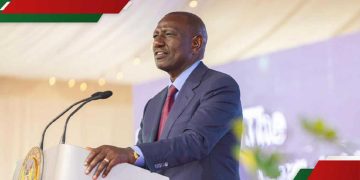A recent poll conducted by the Institute for Race Relations (IRR) has unveiled significant shifts in South Africa’s political landscape.
The poll indicates that parties within the Government of National Unity (GNU) have gained traction since the general election on May 29, 2024.
According to reports from City Press, partners such as the ANC, DA, IFP, Patriotic Alliance, and Freedom Front Plus are all experiencing increased support.
Declining Support for Opposition Parties
In stark contrast to the GNU’s rising popularity, opposition parties have seen a notable decline in their support.
The IRR poll revealed that:
• Jacob Zuma’s uMkhonto weSizwe Party (MKP) dropped from 15% to 12%.
• Julius Malema’s Economic Freedom Fighters (EFF) fell from 10% to 7%.
These shifts suggest a changing sentiment among voters as they reassess their political affiliations.
Key Findings from the IRR Poll
Conducted in September and October 2024 with a sample of 604 registered voters, the IRR poll has a margin of error of 5%.
Here are some key findings:
• Preference for Coalition: A majority of 52% of respondents expressed a preference for a GNU that includes the DA and IFP as the ANC’s main partners, while only 27% favored a coalition with MKP and the EFF.
• Confidence in Governance: Two-thirds (66%) of respondents believe that the GNU will complete its full five-year term, lasting until the next general election in 2029.
• Job Creation Priority: A large majority (83%) prioritized job creation over further distribution of social grants, aligning with the ANC’s election campaign focus on income grants.
• Merit-Based Appointments: 53% agreed that appointments should be based on merit, with special training for previously disadvantaged groups.
Insights from Hermann Pretorius
Hermann Pretorius, head of strategic communications at the IRR, provided valuable analysis on these findings.
He noted that the growth in support for GNU partners reflects a cautiously optimistic voter sentiment toward the coalition government.
Pretorius stated:
“Before the elections, the DA was afraid that a quarter of its voters would leave if they worked with the ANC, but this poll shows that this quarter of DA voters is willing to give cooperation with the ANC a chance.”
He emphasized that being seen as a “constructive political player” is key to sustainable political relevance and warned that polling data on job creation sends a clear message to the ANC to focus on pragmatic issues.
The EFF and MKP: Challenges Ahead
Pretorius attributed the decline in support for the EFF to Jacob Zuma’s resurgence in politics, which has overshadowed Julius Malema’s image as a champion for the oppressed.
He criticized Malema’s decision to dismiss top EFF officials over public relations failures, including their inability to fill buses for an event in Soweto.
Similarly, he pointed out that MKP’s decline is linked to erratic leadership changes influenced by Zuma.
However, he noted that the party is beginning to establish its structures despite Zuma’s significant influence.
A New Political Landscape
The results of this poll highlight a pivotal moment in South African politics.
As parties within the GNU gain support and opposition parties like the EFF and MKP face challenges, it remains crucial for all political players to address voter concerns about economic growth and job creation.
The upcoming months will be critical as South Africa navigates this evolving political landscape and prepares for future elections.











